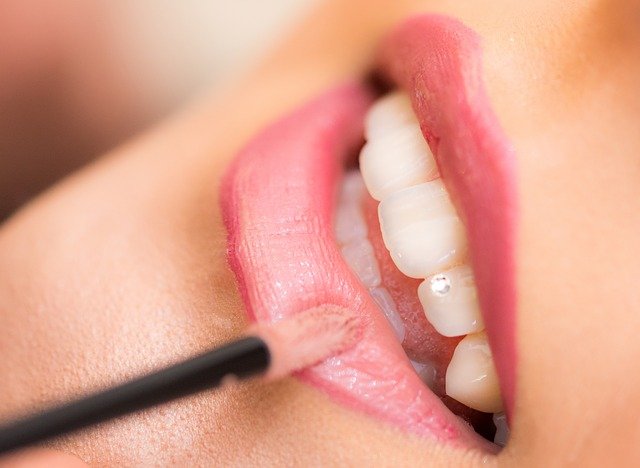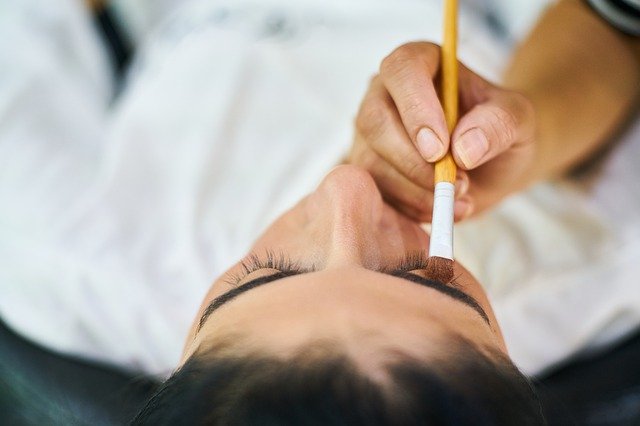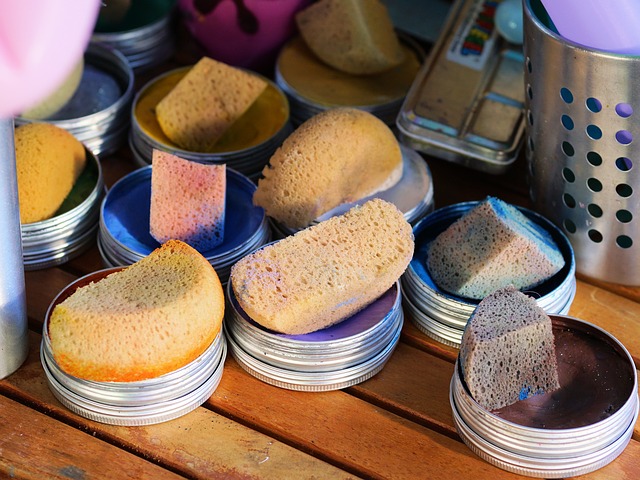You take great care to choose the right makeup and techniques to enhance your natural beauty, but are you giving your makeup brushes the same attention? To keep them in top condition, you'll want to adopt gentle cleaning and care methods that won't damage the bristles or harm your skin. You can start by ditching harsh chemicals and opting for milder alternatives, but which ones are the most effective? With a few simple swaps, you can extend the life of your brushes and guarantee they continue to perform flawlessly – but where do you begin? When it comes to cleaning your makeup brushes, it’s essential to establish a regular routine. Set aside some time each week to give your brushes a quick cleanse using a gentle, natural brush cleaner. In addition to taking care of your brushes, incorporating timesaving skincare tips into your daily routine can help maintain the health and appearance of your skin. By simplifying your skincare routine, you can save time and still achieve radiant, healthy-looking skin.
Mild Soap and Water Solution
To clean your makeup brushes with a mild soap and water solution, you'll need to mix a small amount of gentle soap with warm water in a bowl. You don't want the water to be too hot, as this can damage the bristles or loosen the glue that holds them in place. A mild soap, such as baby shampoo or a fragrance-free cleanser, is best, as it won't strip the bristles of their natural oils or leave any harsh residues behind.
Once you've mixed your soap and water, gently submerge the bristles of your makeup brush and massage the soap into a lather. Work the soap through the bristles, but avoid getting any soap on the ferrule, the metal band that holds the bristles in place. Rinse the brush thoroughly with warm water, and then shape it back to its original form. Lay your brushes flat on a towel to air dry, making sure they're not touching each other. This will help prevent bacterial growth and keep your brushes clean and healthy.
Coconut Oil for Brush Conditioning
Using coconut oil to condition your makeup brushes can help keep the bristles soft, supple, and healthy-looking. When you clean your brushes with soap and water, you're stripping them of their natural oils. Coconut oil helps to replenish these oils, leaving your brushes feeling silky and looking vibrant. To condition your brushes with coconut oil, simply warm a small amount of oil in your hands and work it into the bristles. Focus on the ends of the bristles, which tend to be the driest. Gently massage the oil into the bristles, working from the ends up to the base of the brush.
You can also let the coconut oil sit on the bristles for a few minutes before gently blotting it away with a towel. This allows the oil to penetrate deeper into the bristles. By regularly conditioning your makeup brushes with coconut oil, you'll notice a big difference in their overall health and appearance. They'll be softer, shinier, and will apply makeup more smoothly and evenly. Take good care of your brushes, and they'll take good care of your skin.
Olive Oil for Hydration
While coconut oil excels at conditioning your brushes, olive oil is better suited for hydrating and protecting them, especially when they're exposed to harsh products or environmental stressors. You'll notice that after using olive oil on your brushes, the bristles will feel amazingly soft and supple, and their natural shine is restored. This is especially beneficial if you use a lot of powder or gel products that can dry out your brushes.
When you're applying olive oil, remember that a little goes a long way. Start by pouring a small amount onto your palm, and then work it into each brush in a gentle circular motion, making sure the bristles are evenly coated. If you notice some areas that are particularly brittle or stiff, you can focus the oil there and gently work it in to help replenish moisture and hydration. This simple habit will protect your brushes over time.
Vinegar for Sanitizing Brushes
In addition to hydrating your brushes with olive oil, you'll also want to sanitize them regularly with vinegar to remove dirt, bacteria, and other microorganisms that can accumulate and cause breakouts. Vinegar is a gentle, non-toxic alternative to harsh chemicals, and it's easy to incorporate into your brush care routine. Simply mix one part white vinegar with two parts water in a bowl, and gently swirl your brushes around in the solution for about 30 seconds. Rinse them thoroughly with lukewarm water to remove any remaining vinegar.
Remember to avoid getting vinegar into the ferrule or the glue that holds your brush hairs in place. Doing so can damage your brushes or cause them to shed excessively. Vinegar can also be a great spot treatment for any brushes with stubborn stains or residue. Just be sure to always rinse them well afterward and lay them flat to dry.
Castile Soap for Gentle Cleaning
Now that you've sanitized your brushes with vinegar, you'll want to give them a gentle yet effective cleanse with castile soap to remove any remaining impurities and residue. Castile soap is a mild, non-toxic, and biodegradable cleanser that's perfect for delicate makeup brushes. To use castile soap, mix a small amount with warm water in a bowl, creating a sudsy solution. Dip the brush head into the soapy water, working the soap into a lather, and gently massage it into the bristles. Rinse the brush thoroughly with clean water to remove all soap residue.
When using castile soap, be sure to avoid getting the ferrule (the metal band that holds the bristles in place) wet, as this can cause it to rust. Gently blot the brush with a clean towel to remove excess water. Reshape the brush to its original form and lay it flat to air-dry. Castile soap is an excellent alternative to harsh chemical-based cleaners, and it's gentle enough for daily use. By incorporating castile soap into your makeup brush care routine, you'll be able to keep your brushes clean, hygienic, and in great condition for a longer period.
Essential Oils for Natural Fragrance
Adding a few drops of essential oils to your makeup brush cleaning routine can leave your brushes smelling fresh and clean, and even provide some antimicrobial benefits to help keep them hygienic. You can choose from a variety of essential oils, such as lavender, tea tree, or eucalyptus, depending on your personal preferences and skin type. When selecting an essential oil, make sure to opt for high-quality, pure oils that are safe for use on your skin and won't cause any irritation.
To incorporate essential oils into your makeup brush care routine, simply add a few drops to your cleaning solution or soap. You can also mix a few drops with water to create a final rinse for your brushes. This will help remove any remaining soap residue and leave your brushes smelling fresh. Remember to always dilute the essential oils with water or a cleaning solution, as undiluted oils can be too harsh on the bristles. By incorporating essential oils into your makeup brush care routine, you'll be able to keep your brushes clean, fresh, and hygienic, while also enjoying the benefits of natural fragrances.
Baking Soda for Exfoliating Bristles
Your makeup brushes can benefit from an occasional exfoliating treatment using baking soda, which helps remove built-up dirt and oils from the bristles. When you use your brushes daily, they can accumulate a lot of grime, causing them to feel stiff and look dull. To exfoliate your brushes, simply mix 1 teaspoon of baking soda with 1 tablespoon of mild soap and warm water to form a paste. Gently massage the paste onto the bristles, working from the base to the tips. You'll be amazed at how well the baking soda helps loosen and remove dirt and oils.
After exfoliating, rinse your brushes thoroughly with warm water to remove all soap and baking soda residue. Shape your brushes back to their original form and lay them flat to air-dry. By incorporating baking soda into your brush care routine, you'll keep your brushes in top condition and extend their lifespan. Plus, exfoliating your brushes regularly will also help prevent the buildup of bacteria and germs, ensuring a healthier and more hygienic makeup application experience. By taking care of your brushes, you'll get the best performance out of them.
Lemon Juice for Whitening Bristles
Many makeup artists swear by lemon juice as a natural way to whiten and brighten bristles that have become discolored from repeated use. If you're looking for a gentle alternative to harsh chemicals, you can try using lemon juice to revive your makeup brushes. Mix equal parts lemon juice and water in a bowl, and then dip the bristles of your brush into the solution. Gently massage the bristles to work the solution in, and then rinse the brush with warm water.
Be careful not to soak the ferrule, as this can cause damage to the glue that holds the bristles in place. You can also use a cotton swab to apply the lemon juice directly to the bristles if you're worried about getting the ferrule wet. Let the brush air-dry, and you'll notice a significant improvement in the color and brightness of the bristles. Regular use of lemon juice can help keep your makeup brushes looking their best and extend their lifespan. Just remember to always dilute the lemon juice with water, as undiluted lemon juice can be too harsh on the bristles.
Jojoba Oil for Nourishment
To keep your makeup brushes in top condition, you'll want to nourish the bristles with a gentle oil, and jojoba oil is an excellent choice. You'll love that it's easily absorbed, leaving no residue behind, which means it won't affect the performance of your brushes or the application of your makeup. Plus, it's rich in antioxidants, which help protect the bristles from damage caused by free radicals.
When using jojoba oil for nourishment, you'll simply dip the tips of the bristles into a small amount of oil and gently massage it into the bristles. Don't soak the brushes, as this can cause the glue to loosen and the bristles to fall out. After massaging, gently wipe off any excess oil with a clean towel. This will help prevent oil buildup and keep your brushes in great shape. By regularly nourishing your makeup brushes with jojoba oil, you'll be extending their lifespan and keeping them looking and performing their best.
At a Glance
You've learned the gentle alternatives for makeup brush care. By using mild soap and water solutions, coconut oil, olive oil, and jojoba oil, you're keeping your brushes soft and supple. Vinegar, castile soap, and baking soda help sanitize and exfoliate, while lemon juice whitens and essential oils freshen. You're now equipped to maintain your brushes' quality and extend their lifespan with these natural and effective methods. Start giving your brushes the TLC they deserve!






